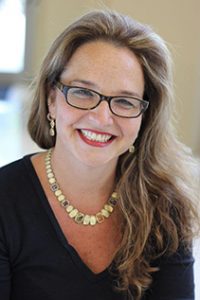 Here at Dimensional Insight, one of our vertical focuses in the United States is in healthcare. There are a lot of interesting trends and changes going on in the industry, such as the move to value-based care, the continuing challenges of interoperability (or lack thereof), and the emergence of new technologies, such as artificial intelligence and machine learning.
Here at Dimensional Insight, one of our vertical focuses in the United States is in healthcare. There are a lot of interesting trends and changes going on in the industry, such as the move to value-based care, the continuing challenges of interoperability (or lack thereof), and the emergence of new technologies, such as artificial intelligence and machine learning.
One of the stellar employees here who helps us wrap our heads around these emerging trends and how to apply them in our customer deployments is Julie Lamoureux, senior healthcare consultant. I recently chatted with Julie about her role here at Dimensional Insight and what her hopes are for the future of healthcare and technology.
Julie, what is your position at Dimensional Insight? What responsibilities does that role entail?
I’m a senior healthcare consultant. My job is to make sure that on the client’s clinical side, the expectations they have for the software are translated properly into the solution we give them. My competency is in quality in healthcare, so there’s a lot of regulation, and I make sure the regulations are well translated into what we give our customers.
I know your career didn’t begin in consulting. What did you do before entering this field?
I studied to become a dentist. My first job was working as a dentist for 10 years, then I started to do research in dentistry and I realized I really loved statistics. I did a master’s in biostatistics. After I did my master’s, I worked for research groups based in hospitals and supported the statistics and methodology aspects of their research.
What made you want to be a dentist?
I was 6 years old and was in love with my dentist. It’s not something that little kids say, but he was so kind and humane, and I fell in love with the way he practiced. I wanted to be like him.
Why do you enjoy working in this industry?
Healthcare and informatics – those are two fields that in theory shouldn’t go together. But they have to work together. They usually don’t speak the same language. Informatics is talking about very concrete, organized structure data management and analysis. In healthcare, the structure is very different. It is not linear in any way. What I like about this is that I understand the healthcare side and I can help make sense of it to the people from the IT industry.
What do you hope to see change in the healthcare industry within the next 10 years?
I would like to see interoperability. That is, to have systems that may not talk to each other, but their information can be gathered to make it all relate. That way, we can not only know that this is in relation to this but we can visualize it too Right now, we can’t put them together. We can have an idea that, for example, the patients come back to the hospital because they don’t have the social support or the community support that they need at home and they can’t take care of themselves – we have an idea about that, but we can’t put the data together to prove it. So, what I would like to see in the next 10 years is for people to get together and make their systems more interoperable, so we can address the issues in healthcare more globally.
What technologies do you see as being the most impactful in healthcare?
Anything that brings data together and allows you to make sense of it. That is pretty common at this time, but is also very impactful. What is not very common is machine learning and artificial intelligence. That’s what IT specialists want to develop and that’s the focus of many initiatives in healthcare. I don’t see that right now, but I know that it’s going to come very soon and will be very impactful.
How can hospitals make the most of the numbers that they have in front of them?
My background is in process improvement and quality improvement. I think that the best way to use the data is to apply a technique of process improvement. You look at what you’re doing right now, where your shortcomings are, and address it through process improvement to make your operations better or more efficient.
What is the coolest thing you’ve seen a customer do with Diver?
I’ve seen a group improve its use of a medication by gathering the data from a large data set and seeing where its costs were and saying, “OK, this where it’s hurting us.” The group was able to improve its bottom line by addressing exactly where the costs were negatively impacting it. It used the software the way it’s intended to be used. Gather the data, see how you’re trending, and when you do something, see how it is affecting your bottom line.
If you weren’t working in the healthcare industry, what other field would you be working in?
I would probably be a horse trainer. I just love animals and I love taking care of them. They look so independent but they’re vulnerable at the same time. Taking care of them is rewarding without needing them to say thank you.
Want to learn more about our amazing staff at Dimensional Insight? Here are some more employee profiles.
- DIUC19 Day 4: Final Training and Farewell - August 8, 2019
- DIUC19 Day Three: Sessions and Product Showcase - August 7, 2019
- 4 Ways to Sabotage a Data Analytics Project - July 25, 2019


